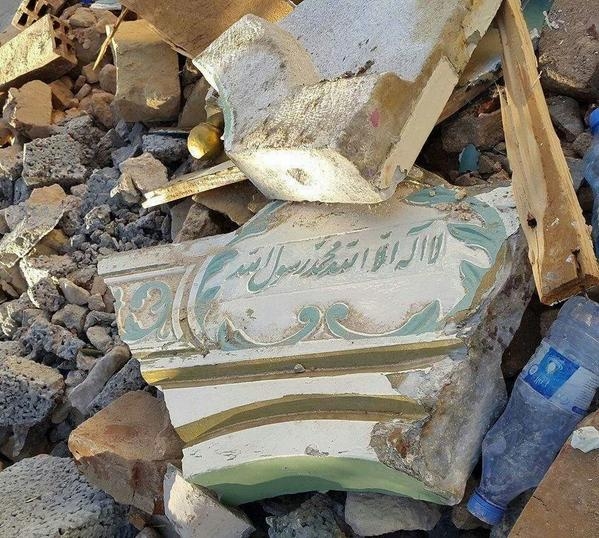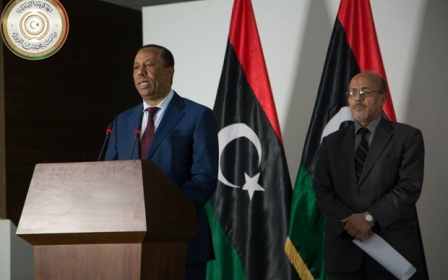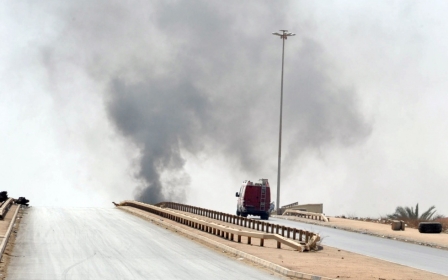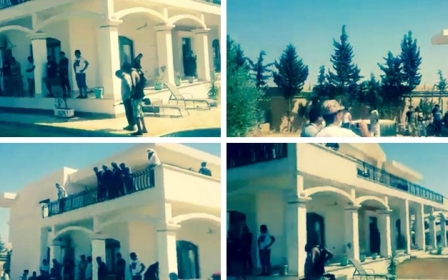Libya's Tobruk government calls on army to 'liberate' Tripoli
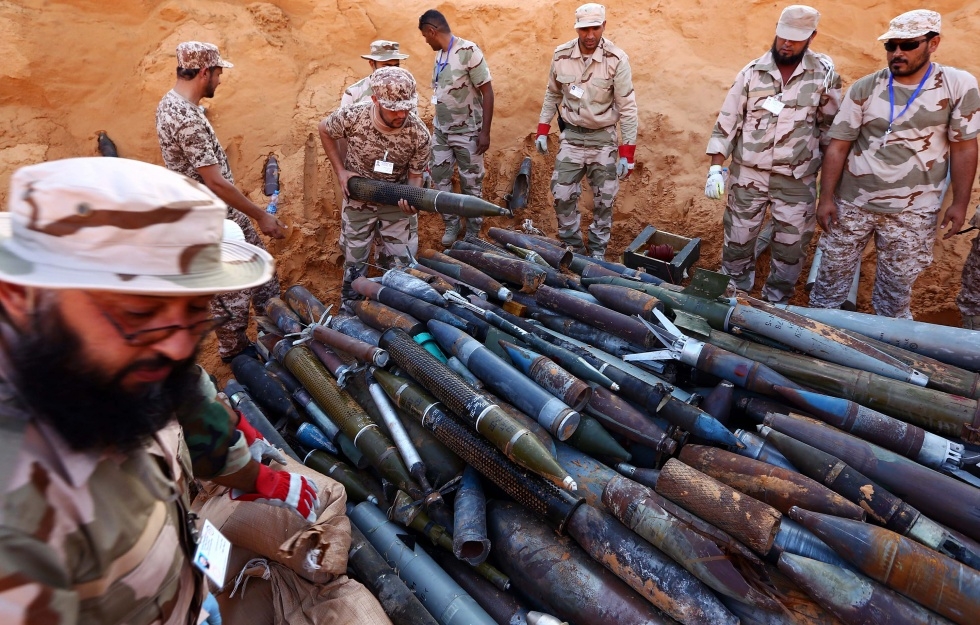
Libya's Tobruk-based House of Representatives (HoR) on Tuesday ordered army troops to launch a military operation aimed at "liberating" the capital Tripoli from armed militias, and called on local residents to launch a campaign of civil disobedience against fighters controlling the town.
In a statement, the interim parliament, whose legitimacy is contested, said it had ordered the army to "liberate" Tripoli – and the state institutions located therein – from armed groups.
It called on young Libyans in Tripoli and its outskirts "to join hands with the army to liberate yourselves, your families and your city."
The assembly, which has been holding meetings in the eastern city of Tobruk while the capital remains under militia control, also urged Tripoli residents to launch “a civil disobedience campaign until the arrival of the army.”
The HoR statement went on to accuse local militias of destroying public and private property in the city, torturing residents and attacking the homes of government officials.
Since armed groups seized control of the capital months ago, with Libya Dawn fighters capturing Tripoli’s airport in late August, militias have frequently been accused of launching attacks on various government institutions.
Translation: Raid, vandalism and theft at the headquarters of the Electricity Ministry in Tripoli, Libya
Fighters from Libya Dawn, an Islamist-aligned coalition of militias, also took over the US embassy in Tripoli in late August, appearing to host a large celebration in the captured building.
HoR vows to prosecute rival leaders
The statement from the House of Representatives on Tuesday also vowed to prosecute the speaker of Libya's former interim parliament and the head of the country's "illegitimate government", Omar al-Hassi.
The statement accuses the Tripoli-based parliament of "staging a coup" against Libya’s legitimate authority, the House of Representatives.
In the three years since the overthrow of former dictator Muammar Gaddafi, rival militias have frequently locked horns, bringing violence to Libya's main cities.
Sharp political divisions have yielded two rival seats of government, each of which has its own institutions.
Two assemblies are vying for legislative authority: the House of Representatives (HoR) and the General National Congress (GNC).
The HoR was elected on 25 June, and was since forced to convene in the remote far-eastern city of Tobruk due to security concerns in the capital.
However, the GNC, whose mandate ended in August, contests the legitimacy of the new parliament, and continues to meet and issue decisions from the capital.
The two parliaments support two different governments respectively headquartered in the two cities, Tobruk and Tripoli.
Libya’s Supreme Court was due to rule on Monday on the legitimacy of the HoR, but was forced to postpone its decision due to security concerns, after militia fighters surrounded the court overnight on Sunday.
It set a new date of 5 November, when it hopes to issue a decision as to whether the HoR, which has been issuing decisions since its election, is in fact Libya’s legitimate parliament.
Libya Dawn accuses Saudi ArabiaAfter the HoR issued their statement calling on the armed forces to advance towards the capital, Libya Dawn were accused of setting up heavy weaponry and stocks of Grad missiles in the city’s suburbs, a claim the group denied on their Facebook page.
Militias opposed to the House of Representatives are accused of bringing chaos to Libya in the wake of the country’s 2011 revolution.
For their part, armed groups accuse the HoR of allowing foreign intervention by stealth into Libya.
Egypt and the UAE have long been suspected of involvement in airstrikes launched by unidentified planes on militia sites in Libya, and last week a member of the HoR admitted for the first time that Egyptian planes had been used in the attacks.
On Monday, Libya Dawn also accused Saudi intelligence services of involvement in an attack that rocked the Mizran mosque in central Tripoli on Sunday.
The mosque was badly damaged in the attack, with images showing a huge hole in the building’s wall and a wall plaque lying in pieces on the ground.
Many blamed Libya Dawn for the attack, but in a statement released on Tuesday the group denied any involvement, instead alleging that the raid had been launched “by groups working for Saudi interests, backed by actors and funds hostile to the [2011] 17th February revolution.”
New MEE newsletter: Jerusalem Dispatch
Sign up to get the latest insights and analysis on Israel-Palestine, alongside Turkey Unpacked and other MEE newsletters
Middle East Eye delivers independent and unrivalled coverage and analysis of the Middle East, North Africa and beyond. To learn more about republishing this content and the associated fees, please fill out this form. More about MEE can be found here.



